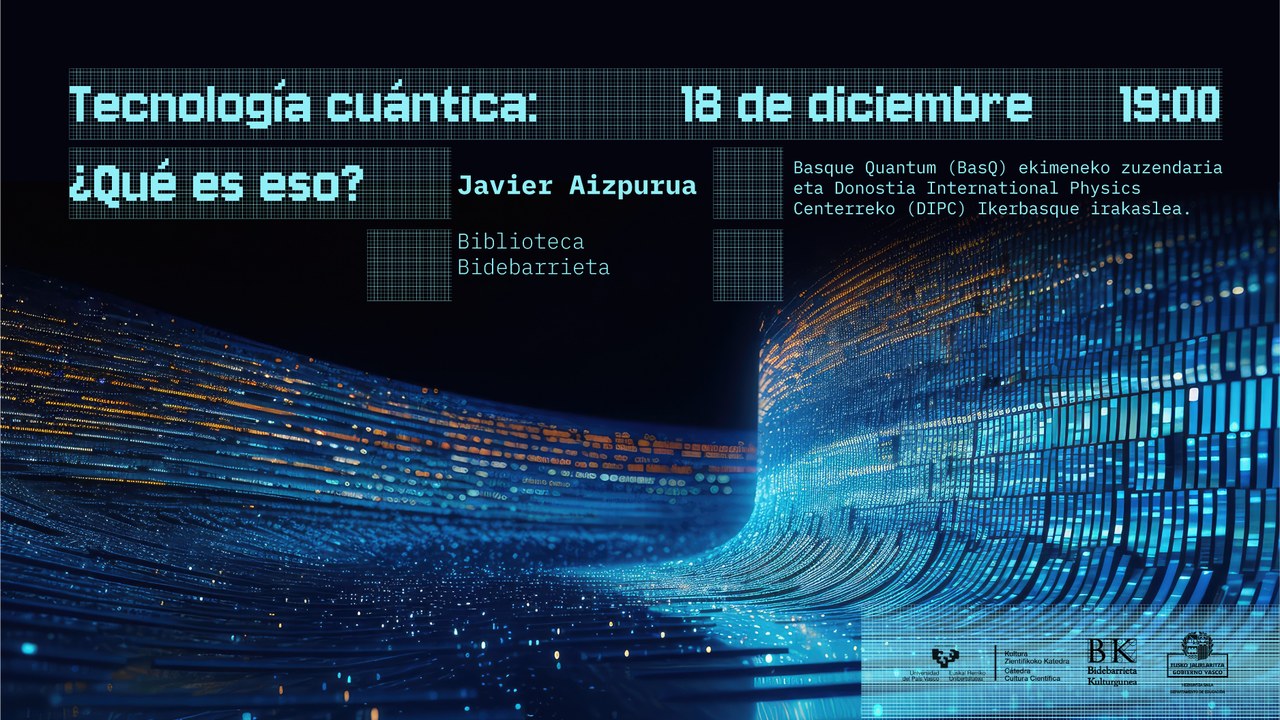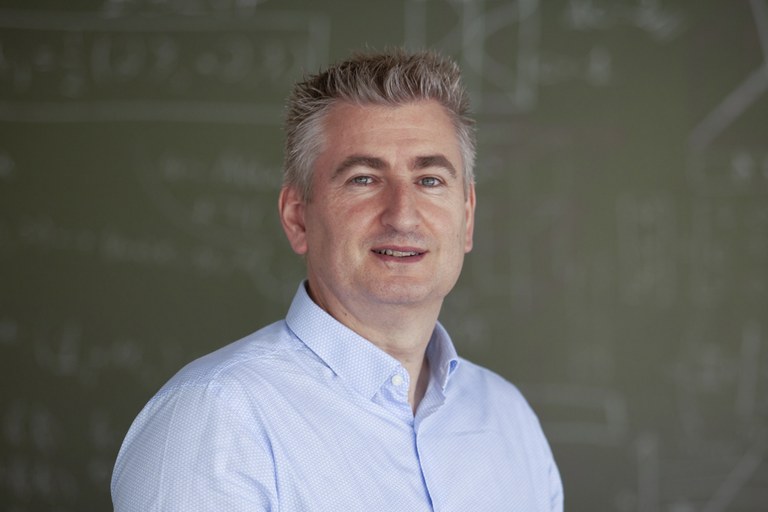Quantum technologies: what is it?
Collaborations
- Participant
-
Javier Aizpurua
DIPC, Ikerbasque, BasQ - When
-
2024/12/18
19:00 - Place
- Bidebarrieta Library (Bilbao)
- Add to calendar
-
iCal

In recent years there have been several advances in the field of quantum technology. One example is the quantum supercomputer that IBM will install next year in San Sebastian as part of the Basque Quantum project promoted by the Basque Government and the three provincial councils of Vizcaya, Gipuzkoa and Alava.
Such a tool can solve problems that until now were thought to be unsolvable. In other words, what was impossible to do with traditional computers will now be possible. The main characteristic of quantum computing is that, instead of being based on bits, it works in qubits. This allows computers to work with information with much more agility and this can open several doors. In fact, quantum technologies can have a great impact in different areas. For example, it will be possible to design new materials, create specific drugs or improve the optimization of research.
Javier Aizpurua, director of the Basque Quantum (BasQ) initiative and Ikerbasque professor at the Donostia International Physics Center (DIPC) will talk about this in the conference “Quantum technology: what is it?
In a simple and close language Aizpurua will describe the basics of quantum computing and explain the effects of this technology. It will be in a new edition of the Scientific Bidebarrieta cycle, organized by the Chair of Scientific Culture of the University of the Basque Country and the Bidebarrieta Library.
The talk will take place on December 18, at the Bidebarrieta Library, at 19:00 pm. Admission will be free until full capacity is reached and it will also be available via streaming on the Kulturgunea channel.
About the speaker

Javier Aizpurua is director of the Basque Quantum (BasQ) initiative and Ikerbasque professor at the Donostia International Physics Center (DIPC). After completing his doctoral studies, he made two research stays, one in Sweden and the other in the United States. Upon his return from abroad, he formed his research team in San Sebastian in charge of the theory of Nanophotonics and, from there, he has studied with his team the quantum interaction between light and matter. He has been recognized several times among the world's most highly commended researchers.
In recent times he has received several awards for his scientific contributions, including the Euskadi Research Award in 2022. He has just taken over the management of the BasQ initiative in the last year and, through this, he aims to position the Basque Country as a leader in the development of quantum technologies, promoting research and talent, becoming an international benchmark in them.
